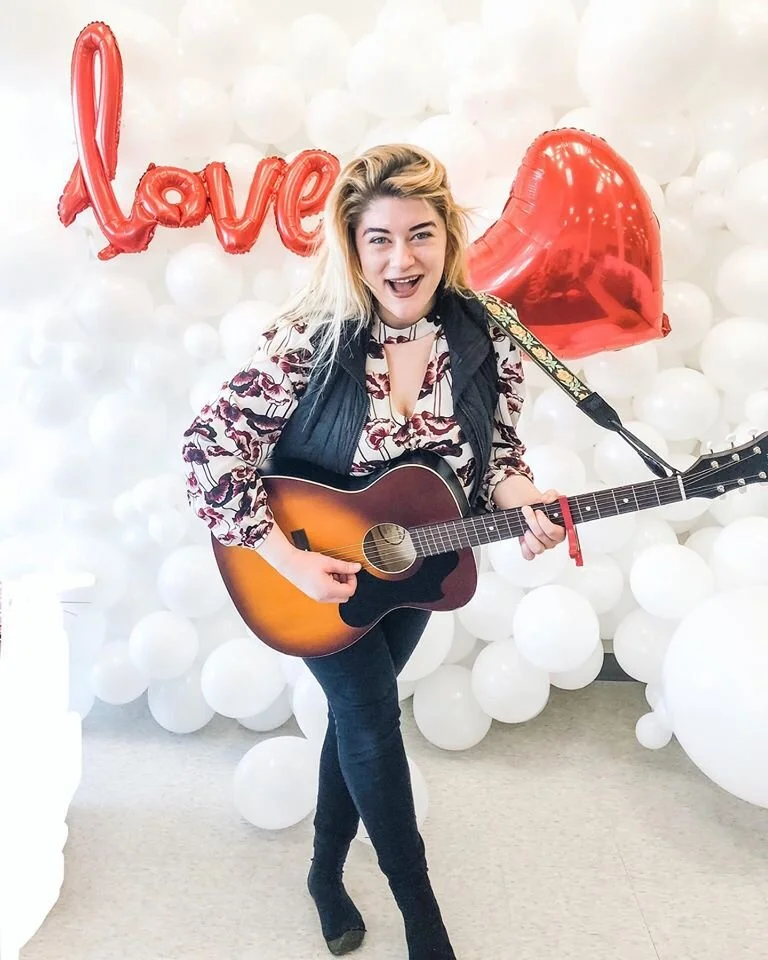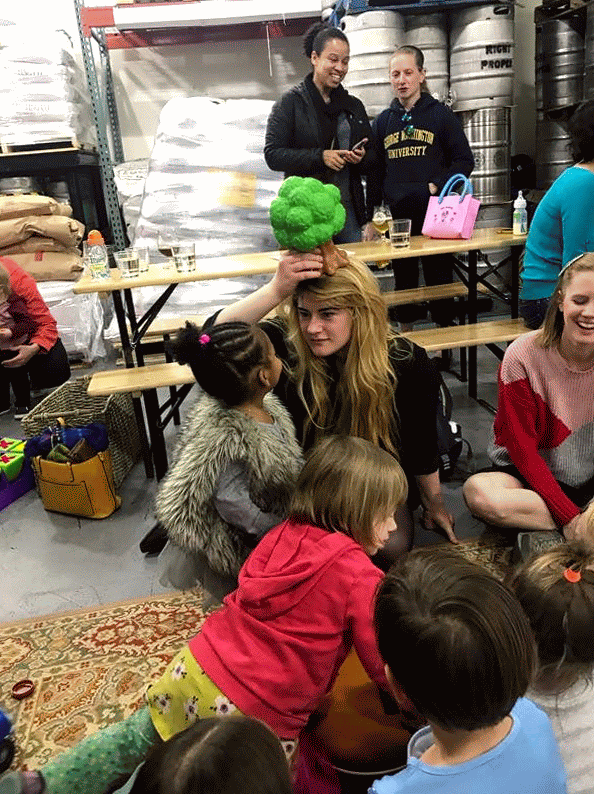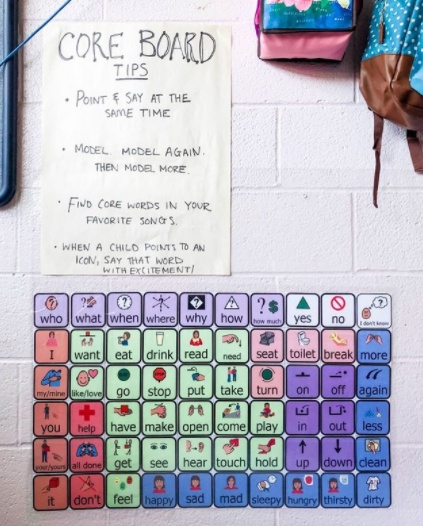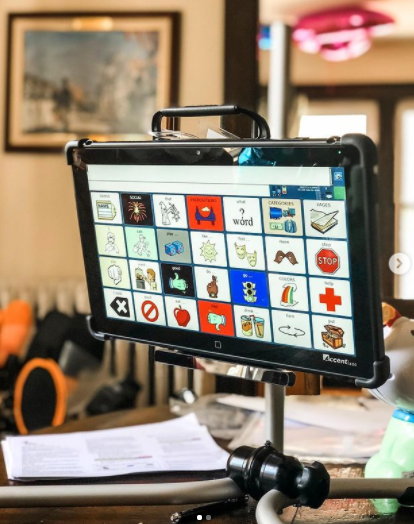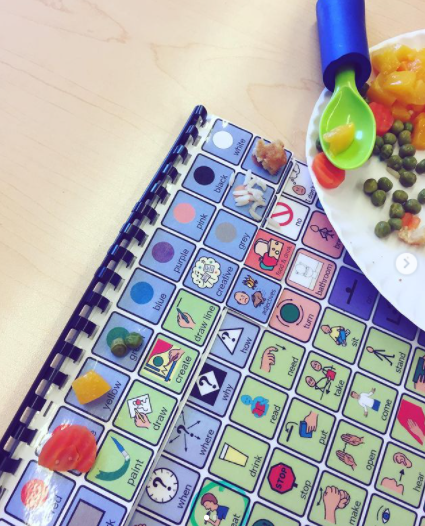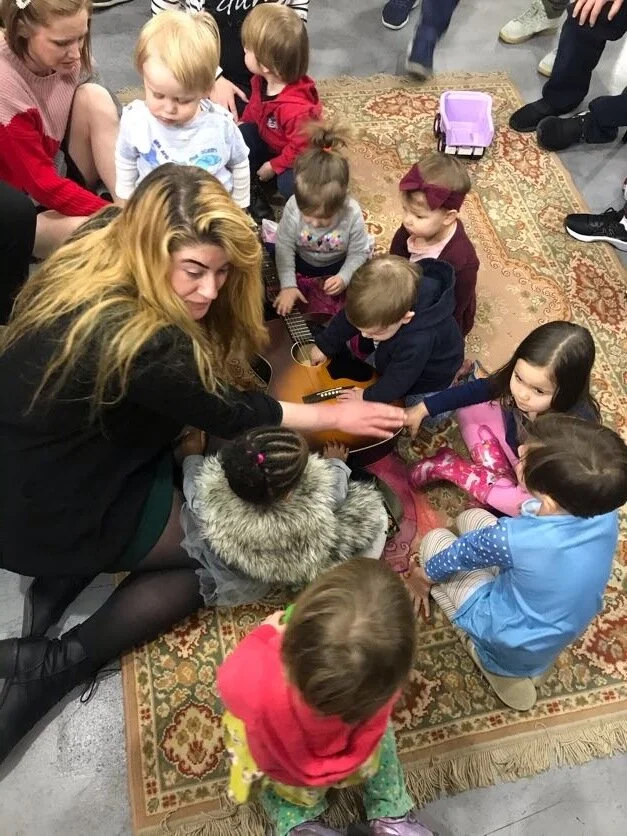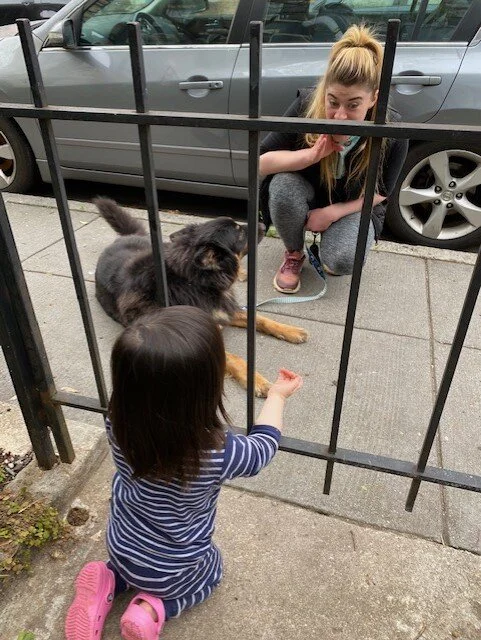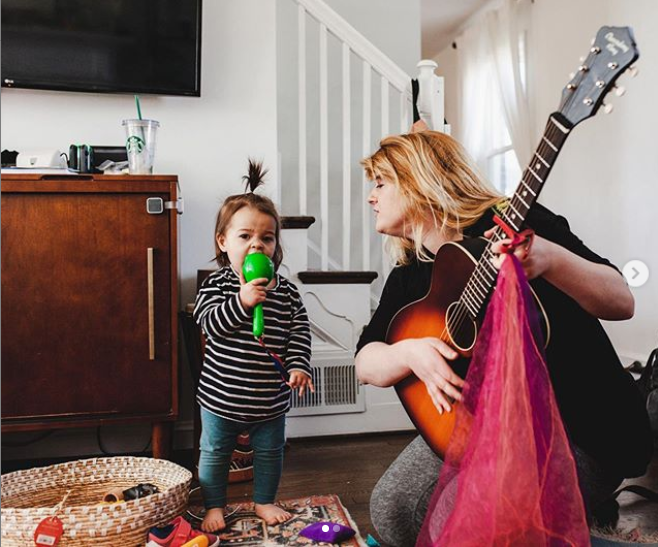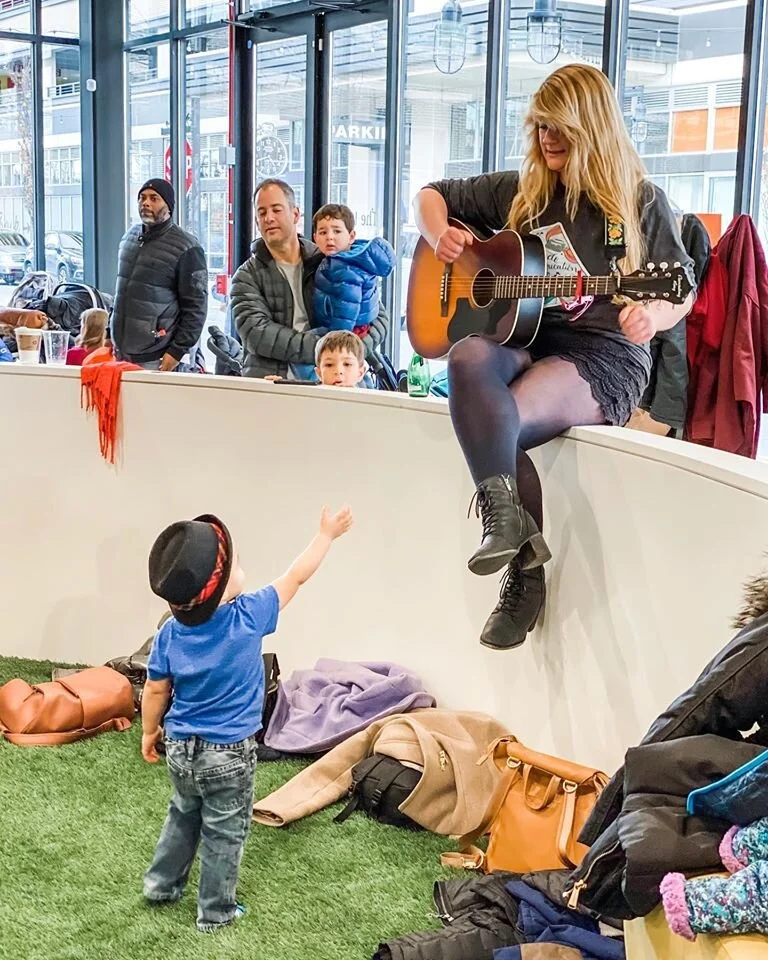Corinne Zmoos, MS, CCC-SLP is a licensed, insured, and certified Speech-Language Pathologist located in the Mount Washington neighborhood of Northwest Baltimore. She provides services out of her music and art lab, Messy Happy Music Lab located at 4901 Springarden Drive.
She received her BA in Speech & Hearing Sciences from The George Washington University and achieved her Master’s in Communication Sciences and Disorders from Emerson College.
Corinne is proud to be a queer, progressive clinician who prioritizes consent, body autonomy, and neurodiversity-affirming practices. Corinne currently uses she/her pronouns.
AAC focused
Trauma-informed
Hanen More Than Words certified
Believer in the coaching model
Crescendo Communication condemns racism and ableism in all forms and recognizes the role that private therapists must play in dismantling racism and institutional violence in the field of communication sciences and disorders.
Ethical private practice requires knowledge of my immense privilege as a white therapist with generational resources who was able to attend two private universities to enter this field. This also requires taking consistent action towards equitable access to high-quality services regardless of family resources, as well as consistent introspective inquiry into the possible and actual harm my assumptions and practices may have. Many therapeutic professions have colonial and oppressive histories (or continue to have these impacts) which must be talked about, including this field that I love so much. I am actively unlearning the techniques, approaches, plans of care, and language that causes harm to clients, families, and the greater social structure that supports my profession.
To reduce gatekeeping to private therapy, Crescendo offers sliding scale and scholarship opportunities so that more DC and Baltimore families can therapy and coaching services to meet their communication goals.
Formal Continuing Education:
ETHICS
Fundamentals of HIPAA for Speech-Language Pathologists and Assistants (0.1)
Reducing the Influence of Implicit Biases for Healthcare Professionals (0.1)
LGBTQ Cultural Competence: Improving Care to the LGBTQ Community (0.1)
Achieving Health Equity for LGBTQ People (0.1)
Mandated Reporting for SLPs (0.1)
Addressing Ethical Challenges Associated with Serving Children with Feeding and Swallowing Disorders in Schools (0.1)
Supervision of Supervisees in an Ethical Manner (0.1)
Health Literacy: Effective Client Communication and Education (0.1)
Delivering Culturally Competent Care: Strategies for Clinicians (0.1)
Working with Interpreters Effectively (0.1)
FEEDING
Picky Eating Through the Lens of Orofacial Myology (0.1)
Typical Feeding Development: An Overview (0.1)
Addressing Ethical Challenges Associated with Serving Children with Feeding and Swallowing Disorders in Schools (0.1)
Key Elements of Picky Eaters: Feeding Assessment (0.1)
Improving Pediatric Feeding Assessment Skills - Lip Functioning (0.1)
LANGUAGE
Facilitating First Verbs through Shared Book Reading (0.1)
Digital Diets and the Impact of Screen Time on Language Development (0.1)
Anxiety and Its Impact on Speech and Language in the Pediatric Population (0.1)
Breaking the Silence of a Communication Disorder (0.1)
Young Children's Negative Attitudes toward Peers with Communication Disorders: What SLPs can do to help (0.1)
The Role of Relationships in Early Development: The Connection Between Experiences and Language Capacity (0.1)
Developmental Language Disorder as a Neurodevelopmental Disability (0.1)
Hanen More Than Words (2.20)
HEARING
Auditory-Verbal Therapy as an Intervention Approach for Children Who Are Deaf: A Review of the Evidence (0.1)
Unilateral Hearing Loss: Advocating for Children through Early Intervention Services and in the Classroom (0.1)
SELECTIVE MUTISM
Evaluation of Selective Mutism (0.1)
Intervening with Selective Mutism: The Nuts and Bolts of Behavioral Treatment (0.1)
20Q: Being Brave - How to Overcome Selective Mutism (0.1)
AAC/ASSISTIVE TECH/AAT
Cognitive Technologies: Preparing for the ATP Exam (0.1)
Recreational Technologies: Preparing for the ATP Exam (0.1)
Legislation: Preparing for the ATP Exam (0.1)
Sensory Technologies: Preparing for the ATP Exam (0.1)
Communication Apps and Core Language (0.15)
Animal Assisted Therapy in Communication Sciences and Disorders: The State of the Evidence (0.1)
BEHAVIOR
Supporting Social Emotional Competence in Young Children: An Overview of the Pyramid Model (0.1)
The Pyramid Model: Preventing Challenging Behaviors in Young Children (0.1)
The Pyramid Model: Functional Positive Behavior Support -Assessment (0.1)
The Pyramid Model: Positive Behavior Support - Intervention (0.1)
MOTOR SPEECH/STUTTERING
Part 4: Let's Talk AAC for Childhood Apraxia of Speech (0.1)
20Q: Non-Speech Oral Motor Treatments: Any evidence? (0.1)
Ethical Considerations When Working with Those who Stutter (0.15)
Why Nonspeech Oral Motor Exercises are Not Effective for Changing Speech Sound Production (0.1)
Maximizing Student Therapy Time Using Power Strategies (0.1)
LITERACY
Efficacy of Professional Development with Individualized Coaching to Enhance Educator Knowledge and Practice of Emergent Literacy Skills (0.1)
COMPLEX DIAGNOSES
Prematurity: Diagnosis and Related Conditions (0.1)
Recognizing Fetal Alcohol Spectrum Disorders (FASD) to Improve Outcomes (0.1)
Hide and Seek: Recognizing females on the autism spectrum (0.1)
SUPERVISION
Clinical Educator Strategies for Using Formative and Summative Feedback (0.1)
Assess and Improve Your Supervision Skills (0.1)
PROFESSIONAL ISSUES
Autism Teletherapy Strategies (0.05)
The 3 Biggest Stressors for SLPs and What to Do About Them (0.1)
Stress, Trauma and Mindfulness: Self-Care for Healthcare Professionals (0.1)
Occupational Safety and Health Administration (OSHA) Bloodborne Pathogens Standards: What You Need to Know (0.1)
TRAUMA/MENTAL HEALTH
Language Outcomes of Children with Trauma Histories: Understanding the Impact (0.1)
Mandated Reporting for SLPs (0.1)
Anxiety and Its Impact on Speech and Language in the Pediatric Population (0.1)
Domestic Violence - What a Healthcare Professional Needs to Know (0.1)
Stress, Trauma and Mindfulness: Self-Care for Healthcare Professionals (0.1)
Domestic Violence - What a Healthcare Professional Needs to Know (0.1)
COACHING/COUNSELING
ApPARENTly This Is Not Going Well: Difficult Conversations with Parents (0.1)
Health Literacy: Effective Client Communication and Education (0.1)
Young Children's Negative Attitudes toward Peers with Communication Disorders: What SLPs can do to help (0.1)
Delivering Culturally Competent Care: Strategies for Clinicians (0.1)


